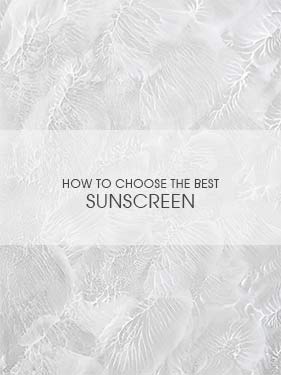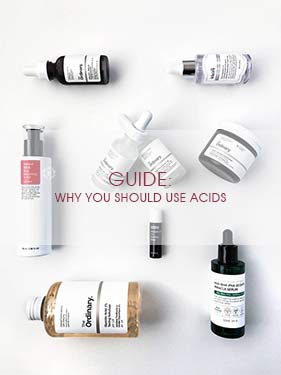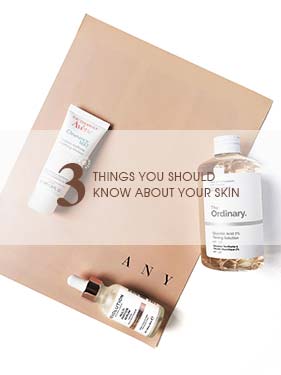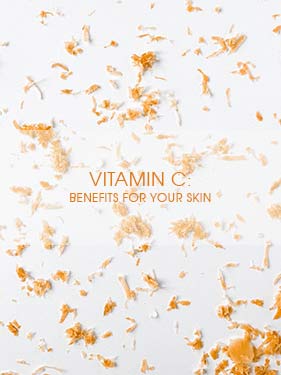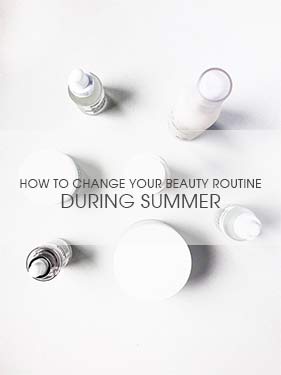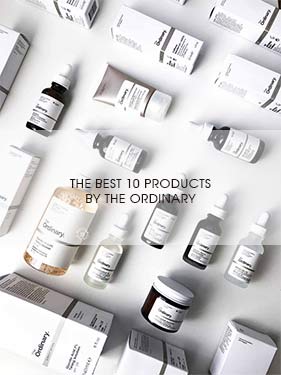Have you heard of the skin barrier? Keeping your skin healthy means protecting it from external damage, and that’s where your skincare routine has a key role. If you want to develop a better beauty routine with the right products and ingredients, check this guide out and have a look at my skincare tips!
Hello! Today I want to continue helping you to get to know your skin better, specifically talking about one of its fundamental parts: the skin barrier. Possibly you remember it from this other article, in which I spoke briefly about it. In this post we are going to go a little further and see why it is so important to take care of your skin barrier.
The points that I will talk about in this post are the following:
1. WHAT IS THE SKIN BARRIER?
When we talk about the skin barrier, we are referring to the outermost layer of our skin and, therefore, our first line of protection against the environment. As you will remember from this article, the skin is made up of three layers: hypodermis (the deepest one), dermis and epidermis (the most superficial one, in which we find the skin barrier).
In the hypodermis, which as I mentioned is the innermost layer, it is where the fat of our body is accumulated. In addition, in this layer we find the sweat glands and hair follicles.
The dermis is the intermediate layer of our skin. Within it we find the different blood vessels and capillaries, the nerve endings that allow us to be in contact with the world around us and the collagen and elastin fibers. If you read to me regularly you will already know that collagen and elastin are fundamental to the structure of our skin, keeping it firm and smooth. Over the years, their levels decrease, causing the appearance of wrinkles and fine lines.
Finally, the epidermis is the outermost layer of the skin. It is divided into five other layers: the basal layer, made up of germinative cells, which are located in the innermost part of the epidermis, the spinous layer, made up of melanocytes (responsible for protecting us against solar radiation), the granular and clear layers and, finally, the stratum corneum, the outermost layer, made up of dead cells. On the surface of the stratum corneum is the skin barrier (also known as hydrolipidic barrier or acid mantle), made up of an emulsion of water and oil and which is the protagonist of this article.
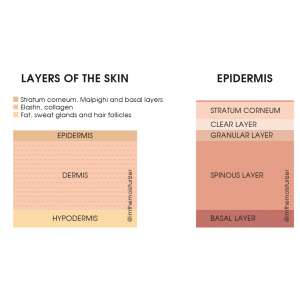
2. THE IMPORTANCE OF THE SKIN BARRIER.
Now that you know where it is and what makes it up, you are probably wondering why I give so much importance to the skin barrier.
The skin barrier arises, primitively, with the appearance of the first vertebrates. Over the years, once we began to distance ourselves from other primates, the needs that our hair covered began to be replaced by our skin. Therefore, while many animals protect themselves from radiation, wounds and infections with their fur, in our case the skin is in charge of preventing them from damaging us.
We must bear in mind that the skin (and, being its outermost layer, the hydrolipidic barrier) is our first protection against the environment that surrounds us, making it our first line of defense against pollution, ultraviolet radiation, wounds and infections.
In the case of infections, our skin plays a fundamental role in preventing them. Although it may seem bizarre, there are various microorganisms that live on our skin, being part of our immune system and benefiting from that privileged place while we take advantage of the advantages they bring to keep other harmful microorganisms at bay. In addition, when for any reason we have a cut or other type of wound, our skin has various mechanisms that allow it to regenerate quickly (healing that wound) and, again, prevent these infections.
On the other hand, the skin barrier also plays a fundamental role in allowing (or blocking) the absorption of different substances. It is in this way that the medicines (and cosmetics) that we commonly use are absorbed. However, most of the substances with which we come into contact do not penetrate the skin). Our skin has several systems that prevent any substance from being absorbed, such as desquamation (which allows eliminating substances that are not completely absorbed), the way corneocytes (the cells that make up the stratum corneum), are distributed, its relatively acidic pH (which keeps pathogens at bay), etc. In this way, the substances that manage to penetrate our skin must comply with very specific conditions.
Finally, we must bear in mind that the skin barrier is not only responsible for protecting us against external agents, it is also essential when it comes to keeping our body temperature in balance. If it were not for that balance, any sudden increase or decrease in temperature could end us.
3. HOW TO TAKE CARE OF THE SKIN BARRIER.
Now that you know the basic functions of the skin barrier, you will understand why I give it so much importance. You may be thinking: ok, this biology class has been entertaining, but how does this affect me?
First, as I mentioned in the previous section, the skin barrier is very important in allowing the absorption of cosmetics, so they must be formulated in the most optimal way to penetrate properly and provide us with all the results that we expect from them.
Furthermore, an unbalanced skin barrier is the ideal environment for problems such as acne to arise. In this case, it is common for the skin to be especially dehydrated and seek to compensate the situation by producing more oil than usual, creating an endless cycle. However, when the skin barrier is balanced, the situation is optimal for some of the actives we use (such as acids or retinol) give us their maximum effectiveness.
Taking care of the skin barrier is easier than it may seem, and the advantages of doing it are many. Some basic tips to keep it in optimal condition are the following:
- Follow at least a basic skincare routine. This way, you will help your skin to stay healthy.
- Use sunscreen daily, without exception. Although sunscreen is part of the basic beauty routine, I want to mention it again, since it is very important to use it (and reapply it). Here you can see my comparison of sunscreens, in case you still have not found the ideal one for you.
- Use mild cleansers. Overly aggressive cleansers end up dehydrating the skin, creating an imbalance. If you have combination or oily skin you could use this one from ByWishtrend, available on Wishtrend, on Yesstyle, and on Amazon, while if your skin is normal or dry you could use this other one from Cerave, which you can find on Amazon and on Feelunique.
- Keep your skin well moisturized. Washing your face is useless if you do not use a moisturizer afterwards to help keep your skin nourished and cared for. Two of my favorite moisturizers are the Youth to the People Superfood Air-Whip Moisture Cream and the Klairs Supple Preparation All-Over Lotion, available on Wishtrend, on Yesstyle, and on Amazon.
- If you want to start using powerful active ingredients (such as acids, retinoids or vitamin C), do it calmly and progressively, allowing your skin to acquire tolerance to them.
- Do not combine powerful actives, such as those I mentioned before, in the same routine, as they can cause serious damage and take a long time to heal. I want to emphasize this point, since sometimes we believe that the products we use are very safe and, by abusing them, we may get in serious trouble. Skincare require patience and perseverance, there are no miracle solutions.
- Always do the patch test before incorporating new products into your beauty routines.
I hope that with this article you have learned to appreciate the importance of the skin barrier and that, from now on, you take better care of it. If you have any questions leave me a comment and I will reply as soon as possible.
If you liked this post and want to continue learning to take care of your skin, you will be interested in reading these others:
Do you want to learn to take better care of your skin? You can see an index of all my informative posts here.
● Follow me on Instagram, Facebook, TikTok and Pinterest.
● Share, comment and like my posts on social media.
● Shop through my links to help me keep up with this blog.

I’m Nacho and I’m passionate about skincare. I really enjoy learning and sharing my knowledge about skincare and I read scientific papers so you don’t have to. I want to break stereotypes because I believe skincare has no gender: skin is skin.


